#lisa golm
Text
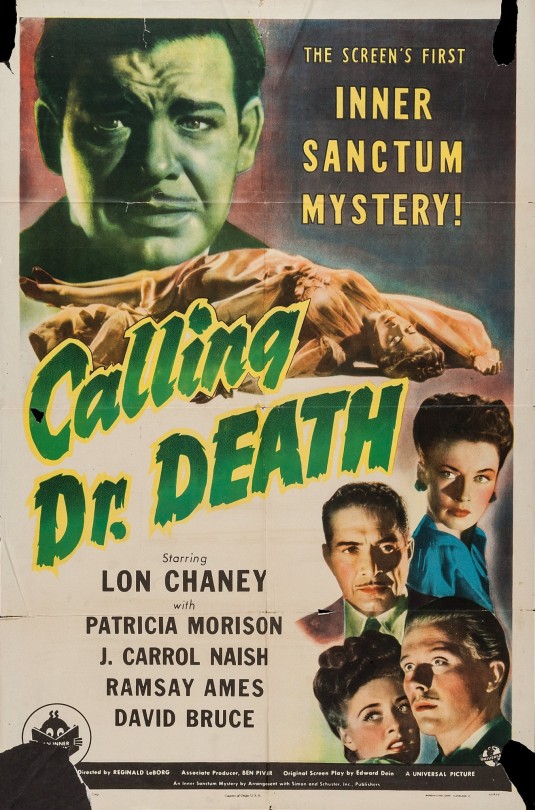
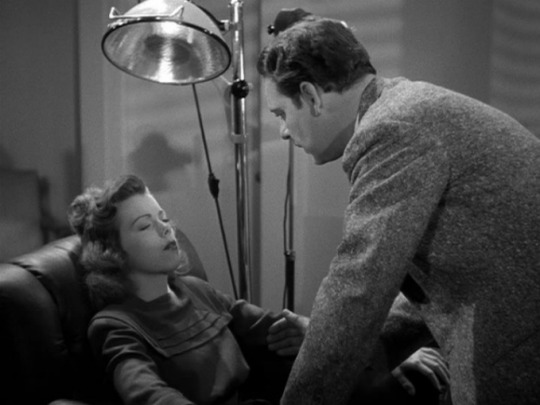
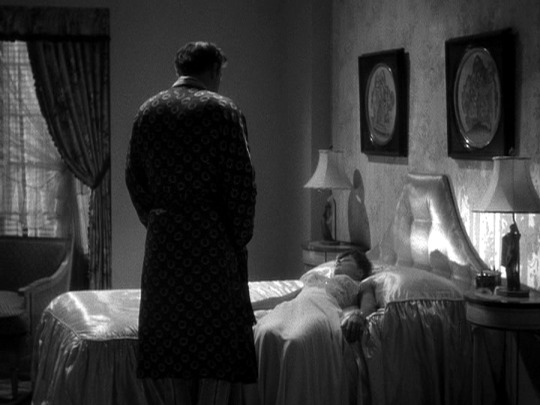
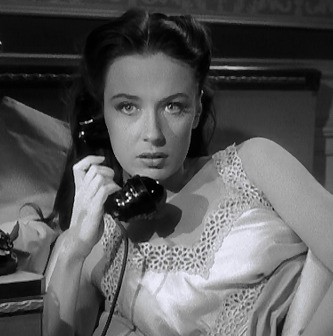

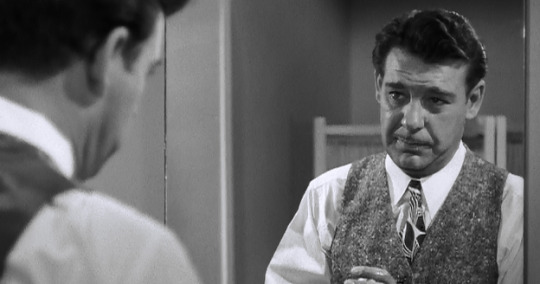
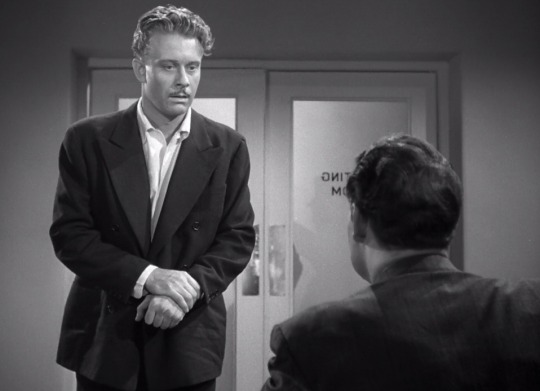
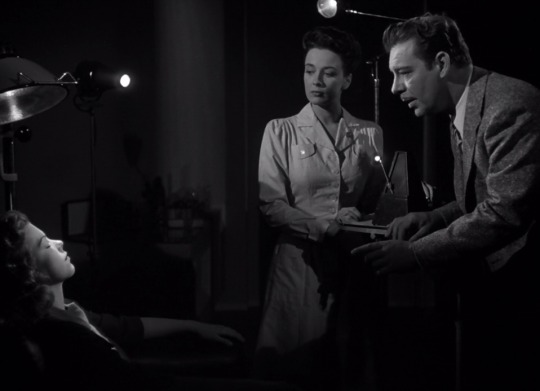
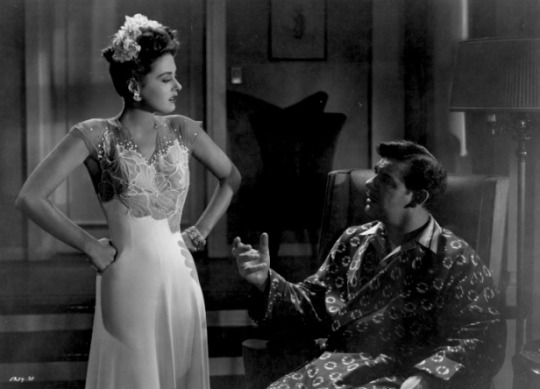
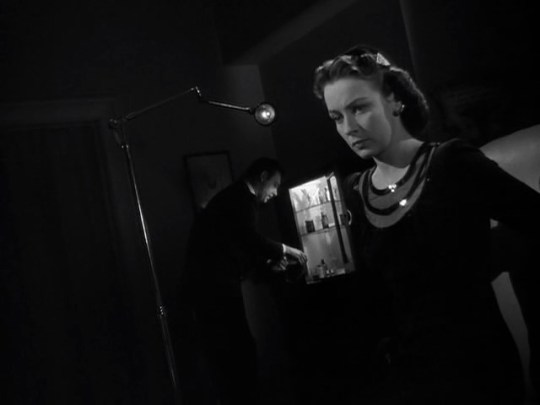
Calling Dr. Death (1943)
"You know, Doctor, it isn't death that frightens men. It's waiting. Anticipation. Your conscience, haunting you in your sleep, in your dreams."
#inner sanctum mysteries#calling dr. death#1943#american cinema#lon chaney jr.#reginald le borg#edward dein#lon chaney jr#patricia morison#j. carrol naish#david bruce#ramsay ames#fay helm#holmes herbert#alec craig#charles wagenheim#lisa golm#frederick giermann#mary hale#the inner sanctum mysteries were a hugely popular run of creepy radio dramas that ran from 1941 to 1952‚ spinning off into a successful#series of novels; in '43 Universal bought the rights to the name only‚ and set about churning out a series of cheapy dark thrillers all#starring human teddy bear Lon Chaney jr. this is the first‚ and it's honestly just a great time. poor Lon has a horrible wife and a doting#assistant‚ and he works as a therapist hypnotist (?) who wakes his patients by slapping them in the face (??). cue some memory loss hijinks#and a murder he may or may not be guilty of... there's little onscreen horror but this still has a decidedly darker bent than many of the#horror b movies the studio were putting out (the description of the murder is toe curlingly nasty) and of course poor Lon suffers terribly#as he always seemed to (cinema's first real poor little meow meow?). add in an investigating cop who takes the case to the point of#persecution and some fun visual flair (at one point in a dream sequence the streets literally close in on a character) and you have the#best kind of grade A ham nonsense that i just kind of love for some reason
4 notes
·
View notes
Text


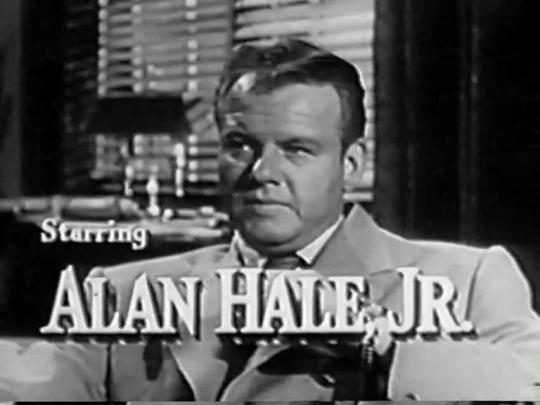


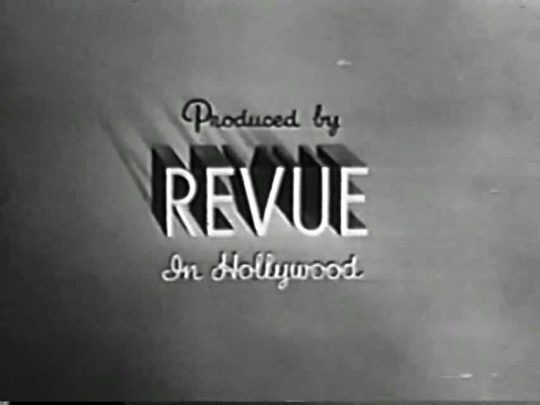



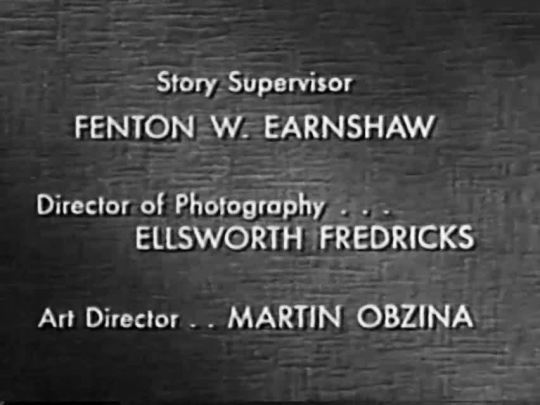
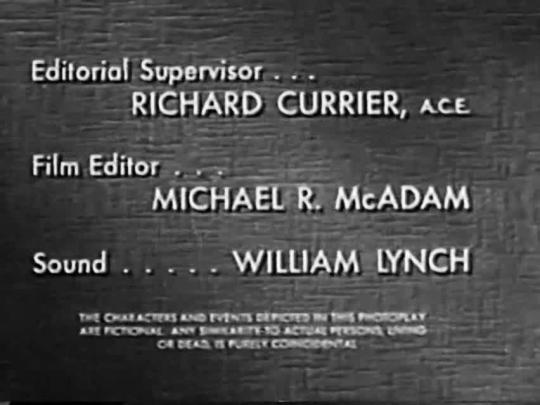
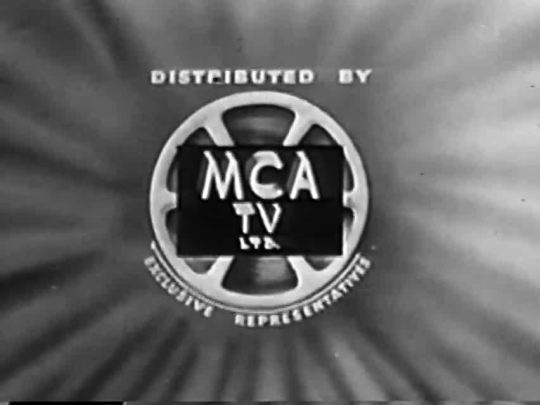
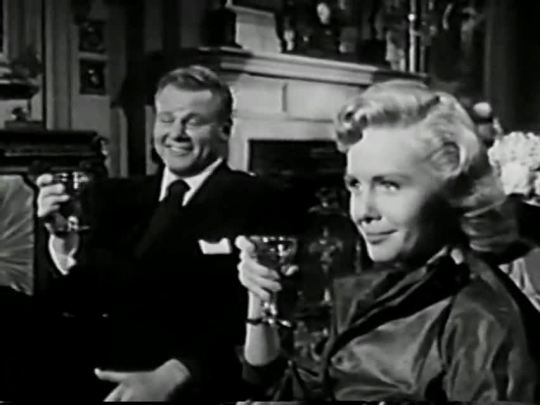
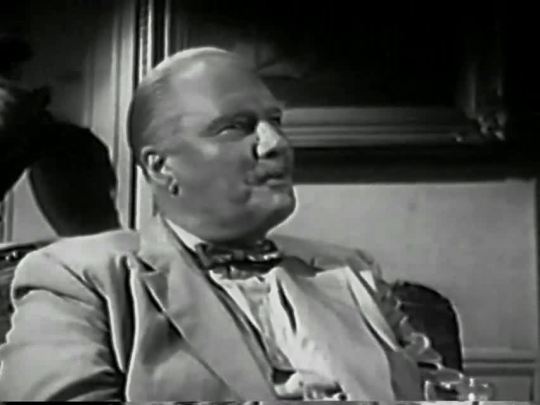

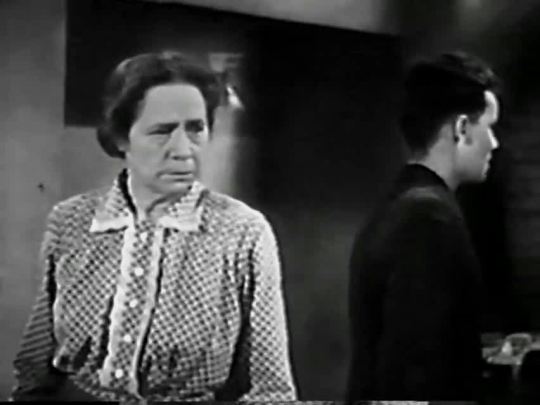

From the Golden Age of Television
Season 1 Episode 2
Biff Baker, U.S.A. - Grey Market - CBS - November 13, 1952
Action Adventure
Running Time: 30 minutes
Written by Alan Woods, John Kohn and Fenton W. Earnshaw
Produced by
Directed by Richard Irving
Stars:
Alan Hale Jr. as Biff Baker
Randy Stuart as Louise Baker
Peter Miles as Joseph
Rex Evans as Tom Davenport
Jay Novello as Maurice
Lisa Golm as Anna
Gabriel Curtiz
Hans Herbert
#Grey Market#TV#Biff Baker U.S.A.#Action#Adventure#1950's#1952#CBS#Alan Hale Jr#Randy Stuart#Peter Miles#Rex Evans#Jay Novello#Lisa Golm
1 note
·
View note
Photo
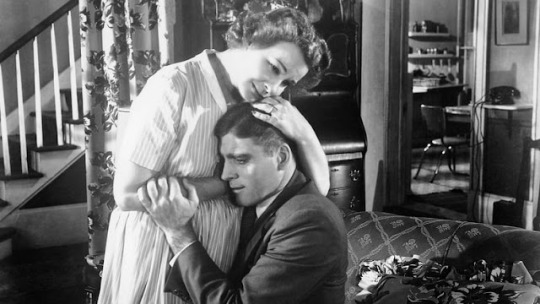
Shirley Booth and Burt Lancaster in Come Back, Little Sheba (Daniel Mann, 1952)
Cast: Shirley Booth, Burt Lancaster, Terry Moore, Richard Jaeckel, Philip Ober, Edwin Max, Lisa Golm, Walter Kelley. Screenplay: Ketti Frings, based on a play by William Inge. Cinematography: James Wong Howe. Art direction: Henry Bumstead, Hal Pereira. Film editing: Warren Low. Music: Franz Waxman.
Shirley Booth won an Oscar for her portrayal of Lola Delaney, a middle-aged frump married to an alcoholic chiropractor (Burt Lancaster) she calls "Daddy" or "Doc." We first see Lola coming downstairs in a ratty chenille robe to answer the doorbell; it's Marie Buckholder (Terry Moore), a college student answering an ad for a room Lola has for rent. Marie takes a look at the room and tells her she'll think it over. When Doc finds out that Lola has decided to take in a roomer, he's angry and forbids it. But when Marie returns to say she wants to rent the room, only Doc is home -- Lola has gone out to buy some orange juice for his breakfast -- and when he gets a look at the nubile Marie, he agrees to rent it to her, along with another downstairs room that Lola calls her "sewing room," though there's no evidence that Lola ever uses it for that. And so begins the film version of the first of William Inge's plays about sexual frustration. The movie would have us believe that Marie rouses a repressed desire in Doc and also makes him want to protect her, as if she were the child he and Lola lost, but as with most of the works by the closeted playwright, it has a strong gay subtext. When Marie, an art student, brings home a classmate, a young athlete named Turk (Richard Jaeckel), to pose for a poster she's creating, Doc is shocked to find the well-built Turk, in a track suit that shows off his muscles, in his living room. He immediately begins professing his concern for Marie's honor, her supposed virginity, but we can sense that he's more than a little aroused by Turk. We learn, too, that Doc was an only child, coddled by his mother and always shy around women, and that it was only because Lola was more than a little sexually forward that he got her pregnant and had to marry her. The real disappointment in the movie is the radical miscasting of Lancaster as Doc. He was 15 years younger than Booth, and no amount of gray at his temples can cover up his athletic vitality and make us believe that the two are supposed to be the same age. Still, despite the screenplay's disingenuousness about sexuality and the stagebound character of its action and dialogue, Booth's performance is worth savoring and there are moments of genuine feeling in the film.
7 notes
·
View notes
Text
Sniffspot lets homeowners rent out their yards as dog parks. This is how it works
New Post has been published on https://petn.ws/gOlm
Sniffspot lets homeowners rent out their yards as dog parks. This is how it works
They bill themselves as the ultimate spot for safe dog exercise, Sniffspot is growing in popularity. Meet a local family who uses Sniffspot to rent out their land to dog owners. HOUSTON – On the website Sniffspot, homeowners or “hosts” list outdoor spaces dog owners can rent for their dogs. KPRC’s Lisa Hernandez explains how […]
See full article at https://petn.ws/gOlm
#DogNews
0 notes
Text

Hans Walter Conrad Veidt (22 January 1893 – 3 April 1943) was a German actor best remembered for his roles in the films Different from the Others (1919), The Cabinet of Dr. Caligari (1920), and The Man Who Laughs (1928). After a successful career in German silent films, where he was one of the best-paid stars of UFA, he and his new Jewish wife Ilona Prager were forced to leave Germany in 1933 after the Nazis came to power. The couple settled in Britain, where he took British citizenship in 1939. He appeared in many British films, including The Thief of Bagdad (1940), before emigrating to the United States around 1941, which led to his being cast as Major Strasser in Casablanca (1942).
Hans Walter Conrad Veidt was born in his parents' home at Tieckstraße 39 in Berlin to Amalie Marie (née Gohtz) and Philipp Heinrich Veidt, a former military man turned civil servant. Veidt would later recall, “Like many fathers, he was affectionately autocratic in his home life, strict, idealistic. He was almost fanatically conservative.” By contrast, Amalie was sensitive and nurturing. Veidt was nicknamed 'Connie' by his family and friends. His family was Lutheran, and Veidt was confirmed in a ceremony at the Protestant Evangelical Church in Alt-Schöneberg, Berlin on 5 March 1908. Veidt's only sibling, an older brother named Karl, died in 1900 of scarlet fever at the age of 9. The family spent their summers in Potsdam.
Two years after Karl's death, Veidt's father fell ill and required heart surgery. Knowing that the family could not afford to pay the lofty fee that accompanied the surgery, the doctor charged only what the family could comfortably pay. Impressed by the surgeon's skill and kindness, Veidt vowed to "model my life on the man that saved my father's life" and he wished to become a surgeon. His hopes for a medical career were thwarted, though, when in 1912 he graduated without a diploma and ranked 13th out of 13 pupils and became discouraged over the amount of study necessary for him to qualify for medical school.
A new career path for Veidt opened up in 1911 during a school Christmas play in which he delivered a long prologue before the curtain rose. The play was badly received, and the audience was heard to mutter, "Too bad the others didn't do as well as Veidt." Veidt began to study all of the actors he could and wanted to pursue a career in acting, much to the disappointment of his father, who called actors 'gypsys' and 'outcasts'.
With the money he raised from odd jobs and the allowance his mother gave him, Veidt began attending Berlin's many theaters. He loitered outside of the Deutsches Theater after every performance, waiting for the actors and hoping to be mistaken for one. In the late summer of 1912 he met a theater porter who introduced him to actor Albert Blumenreich, who agreed to give Veidt acting lessons for six marks. He took ten lessons from him before auditioning for Max Reinhardt, reciting Goethe's Faust. During Veidt's audition, Reinhardt looked out of the window the entire time. He offered Veidt a contract as an extra for one season's work, from September 1913 to August 1914 with a pay of 50 marks a month. During this time, he played bit parts as spear carriers and soldiers. His mother attended almost every performance. His contract with the Deutsches Theater was renewed for a second season, but by this time World War I had begun, and on 28 December 1914, Veidt enlisted in the army.
In 1915, he was sent to the Eastern Front as a non-commissioned officer and took part in the Battle of Warsaw. He contracted jaundice and pneumonia, and had to be evacuated to a hospital on the Baltic Sea. While recuperating, he received a letter from his girlfriend Lucie Mannheim, telling him that she had found work at the Front Theatre in Libau. Intrigued, Veidt applied for the theatre as well. As his condition had not improved, the army allowed him to join the theatre so that he could entertain the troops. While performing at the theatre, his relationship with Mannheim ended. In late 1916, he was re-examined by the Army and deemed unfit for service; he was given a full discharge on 10 January 1917. Veidt returned to Berlin where he was readmitted to the Deutsches Theater. There, he played a small part as a priest that got him his first rave review, the reviewer hoping that "God would keep Veidt from the films." or "God save him from the cinema!"
From 1917 until his death, Veidt appeared in more than 100 films. One of his earliest performances was as the murderous somnambulist Cesare in director Robert Wiene's The Cabinet of Dr. Caligari (1920), a classic of German Expressionist cinema, with Werner Krauss and Lil Dagover. His starring role in The Man Who Laughs (1928), as a disfigured circus performer whose face is cut into a permanent grin, provided the (visual) inspiration for the Batman villain the Joker. Veidt starred in other silent horror films such as The Hands of Orlac (1924), also directed by Robert Wiene, The Student of Prague (1926) and Waxworks (1924), in which he played Ivan the Terrible. Veidt also appeared in Magnus Hirschfeld's film Anders als die Andern (Different from the Others, 1919), one of the earliest films to sympathetically portray homosexuality, although the characters in it do not end up happily. He had a leading role in Germany's first talking picture, Das Land ohne Frauen (Land Without Women, 1929).
He moved to Hollywood in the late 1920s and made a few films there, but the advent of talking pictures and his difficulty with speaking English led him to return to Germany. During this period, he lent his expertise to tutoring aspiring performers, one of whom was the later American character actress Lisa Golm.
Veidt fervently opposed the Nazi regime and later donated a major portion of his personal fortune to Britain to assist in the war effort. Soon after the Nazi Party took power in Germany, by March 1933, Joseph Goebbels was purging the film industry of anti-Nazi sympathizers and Jews, and so in April 1933, a week after Veidt's marriage to Ilona Prager, a Jewish woman, the couple emigrated to Britain before any action could be taken against either of them.
Goebbels had imposed a "racial questionnaire" in which everyone employed in the German film industry had to declare their "race" to continue to work. When Veidt was filling in the questionnaire, he answered the question about what his Rasse (race) was by writing that he was a Jude (Jew). Veidt was not Jewish, but his wife was Jewish, and Veidt would not renounce the woman he loved. Additionally, Veidt, who was opposed to antisemitism, wanted to show solidarity with the German Jewish community, who were in the process of being stripped of their rights as German citizens in the spring of 1933. As one of Germany's most prominent actors, Veidt had been informed that if he were prepared to divorce his wife and declare his support for the new regime, he could continue to act in Germany. Several other leading actors who had been opposed to the Nazis before 1933 switched allegiances. In answering the questionnaire by stating he was a Jew, Veidt rendered himself unemployable in Germany, but stated this sacrifice was worth it as there was nothing in the world that would compel him to break with his wife. Upon hearing about what Veidt had done, Goebbels remarked that he would never act in Germany again.
After arriving in Britain, Veidt perfected his English and starred in the title roles of the original anti-Nazi versions of The Wandering Jew (1933) and Jew Süss (1934), the latter film was directed by the exiled German-born director Lothar Mendes and produced by Michael Balcon for Gaumont-British. He naturalised as a British subject on 25 February 1939. By this point multi-lingual, Veidt made films both in French with expatriate French directors and in English, including three of his best-known roles for British director Michael Powell in The Spy in Black (1939), Contraband (1940) and The Thief of Bagdad (1940).
By 1941, he and Ilona had settled in Hollywood to assist in the British effort in making American films that might persuade the then-neutral and still isolationist US to join the war against the Nazis, who at that time controlled all of continental Europe and were bombing the United Kingdom. Before leaving the United Kingdom, Veidt gave his life savings to the British government to help finance the war effort. Realizing that Hollywood would most likely typecast him in Nazi roles, he had his contract mandate that they must always be villains.
He starred in a few films, such as George Cukor's A Woman's Face (1941) where he received billing under Joan Crawford's and Nazi Agent (1942), in which he had a dual role as both an aristocratic German Nazi spy and the man's twin brother, an anti-Nazi American. His best-known Hollywood role was as the sinister Major Heinrich Strasser in Casablanca (1942), a film which began pre-production before the United States entered World War II. Commenting about this well-received role, Veidt noted that it was an ironical twist of that that he was praised "for portraying the kind of character who had forced him to leave his homeland".
Veidt enjoyed sports, gardening, swimming, golfing, classical music, and reading fiction and nonfiction (including occultism; Veidt once considered himself a powerful medium). He was afraid of heights and flying, and disliked interviews and wearing ties.
In a September 1941 interview with Silver Screen, Veidt said,
I see a man who was once for years studying occult things. The science of occult things. I had the feeling there must be – something else. There are things in our world we cannot trace. I wanted to trace them. The power we have to think, to move, to speak, to feel – is it electricity, I wanted to know? Is it magnetism? Is it the heart? Is it the blood? When the body dies, where is all that? Where is the power that made the body live? No one can tell me it is not somewhere. If you believe in waves, which you must believe after you have the radio, why couldn't human beings contact the wave lengths of someone who is dead? ... this is the kind of thing with which I was, for many years, preoccupied. This is what I tried to find, the answer. I did not find it. But in looking for it there was etched, perhaps, on my face, some hint of the strange cabals I kept with unseen and unknown powers. I did not find it, I say. But I found something else. Something better. I found –faith. I found the ability, very peaceful, to accept that which I could neither see, nor hear nor touch. I am a religious man. My belief is that if we could help to make all people a little more religious, we would do a great lot. If we would pray more ... we forget to pray except when we are in a mess. That is too bad. I believe in prayer. Because when we pray, we always pray for something good.
He went on:
I must tell you something that will disappoint you ... far from being one engaged in strangle rituals of thought or action, what I like best to do is sit in this small garden, on this terrace, and – just sit. Sometimes, I confess, I think a lot; about my past. About my parents who are dead. I like to dream, to go away ... At other times, I sit and read. I read, often, a whole day through. I play golf. I used to be a golf fiend. Now I am not a fiend even on the links. Now I play because it is relaxation. I like the beach very much, the sea. I go to the films often, to the neighborhood theater, my wife and I. Sometimes we go to the Palladium, where there is dancing. It is an amazing sight to me to see young people, how they are like they were thirty years ago, how they hold hands, how they enjoy their lives. To me, the most beautiful thing in California is the Hollywood Bowl, the Concerts Under the Stars. For me, it is a terrific experience. I have never seen an audience in my life like that. 30,000 people, simple people, most of them, listening to music under the stars. I have never seen 30,000 people, simple people, so quiet. I like to think of them as a symbol that one day there may be that oneness for all mankind....
On 18 June 1918, Veidt married Gussy Holl, a cabaret entertainer. They had first met at a party in March 1918, and Conrad described her to friends as "very lovely, tall, dignified and somewhat aloof". They separated in 1919 but attempted to reconcile multiple times. Holl and Veidt divorced in 1922.
Veidt said of Holl, "She was as perfect as any wife could be. But I had not learnt how to be a proper husband." and, "I was elated by my success in my work, but shattered over my mother's death, and miserable about the way my marriage seemed to be foundering. And one day when my wife was away, I walked out of the house, and out of her life, trying to escape from something I could put no name to."
After his separation and eventual divorce from Holl, Veidt allegedly dated his co-star Anita Berber.
Veidt's second wife Felizitas Radke was from an aristocratic Austrian family. They met at a party in December 1922 or at a Charleston dance competition in 1923. Radke divorced her husband for him, and they married in April 1923. Their daughter, Vera Viola Maria, nicknamed "Kiki", was born on 10 August 1925. He was not present at her birth due to being in Italy working on The Fiddler of Florence, but upon hearing of her birth, he took the first train to Berlin and flailed and wept as he first met mother and child at the hospital; he was so hysterical from joy they had to sedate him and keep him in the hospital overnight.
Emil Jannings was Viola's godfather and Elisabeth Bergner was her godmother. She was named after one of Bergner's signature characters, Shakespeare's Viola. The birth of his daughter helped Veidt move on from the death of his dearly loved mother, who had died of a heart condition in January 1922.
From September 1926 to 1929 Veidt lived with his wife and daughter in a Spanish-style house in Beverly Hills.
Veidt enjoyed relaxing and playing with his daughter in their home, and enjoyed the company of the immigrant community, including F. W. Murnau, Carl Laemmle, and Greta Garbo, as well as the American Gary Cooper. The family returned to Germany in 1929, and moved several times afterwards, including a temporary relocation to Vienna, Austria, while Veidt participated in a theatrical tour of the continent.
Radke and Veidt divorced in 1932, with Radke citing that the frequent relocations and the separations necessitated by Veidt's acting schedule frayed their marriage. Radke at first granted custody of their daughter to Veidt, but after further consideration he decided that their daughter needed the full-time parent that his work would not allow him to be. Conrad received generous visitation rights, and Viola called her summer vacations with her father "The Happy Times". She stayed with him three or four months of the year until the outbreak of World War II.
He last married Ilona "Lilli" Barta Prager (or Preger), a Hungarian Jew, in Berlin on 30 March 1933; they remained together until his death. The two had met at a club in Berlin. Veidt said of Lilli in an October 1934 interview with The Sunday Dispatch,
Lilli was the woman I had been seeking all my life. For her I was the man. In Lilli I found the miracle of a woman who had all to give that I sought, the perfect crystallisation in one lovely human being, of all my years of searching. Lilli had the mother complex too. But in the reverse ratio to mine. In her, the mother instinct was so powerful that she poured it out, indiscriminately almost, on everyone she knew. She mothers her own mother. Meeting Lilli was like coming home to an enchanted place one had always dreamed of, but never thought to reach. For her it was the same. Our marriage is not only flawless, it is a complete and logical union, as inevitable as daybreak after night, as harmonious and right as the words that exactly fit the music. My search is finished. The picture in my mind of my mother is of a woman great and holy. But it is a picture clear and. distinct, a deep and humble memory of a woman no one could replace; but now it is not blurred by the complex which before had harassed my mind.
Veidt and Lilli arrived from London at Los Angeles on 13 June 1940 and resided in Beverly Hills, where they lived at 617 North Camden Drive.
Even after leaving England, Veidt was concerned over the plight of children cooped up in London air raid shelters, and he decided to try to cheer up their holiday. Through his attorneys in London, Veidt donated enough money to purchase 2,000 one-pound tins of candy, 2,000 large packets of chocolate, and 1,000 wrapped envelopes containing presents of British currency. The gifts went to children of needy families in various air raid shelters in the London area during Christmas 1940. The air raid shelter marshal wrote back to Veidt thanking him for the gifts. Noting Veidt's unusual kindness, he stated in his letter to him, "It is significant to note that, as far as is known to me, you are the only member of the Theatrical Profession who had the thought to send Christmas presents to the London children."
Veidt smuggled his parents-in-law from Austria to neutral Switzerland, and in 1935 he managed to get the Nazi government to let his ex-wife Radke and their daughter move to Switzerland. He also offered to help Felizita's mother, Frau Radke, of whom he was fond, leave Germany. However, she declined. A proud, strong-willed woman who was attached to her home country, she declared that "no damned little Austrian Nazi corporal" was going to make her leave her home. She reportedly survived the war, but none of the Veidts ever saw her again.
Veidt was bisexual and a feminist. In a 1941 interview he said,
There are two different kinds of men. There are the men men, what do you call them, the man's man, who likes men around, who prefers to talk with men, who says the female can never be impersonal, who takes the female lightly, as playthings. I do not see a man like that in my mirror. Perhaps, it is because I think the female and the male attract better than two men, that I prefer to talk with females. I do. I find it quite as stimulating and distinctly more comfortable. I have a theory about this – it all goes back to the mother complex. In every woman, the man who looks may find – his mother. The primary source of all his comfort. I think also that females have become too important just to play with. When men say the female cannot discuss impersonally, that is no longer so. When it is said that females cannot be geniuses, that is no longer so, either. The female is different from the male. Because she was born to be a mother. There is no doubt about that. But that does not mean that, in some cases, she is not also born a genius. Not all males are geniuses either. And among females today there are some very fine actresses, very fine; fine doctors, lawyers, even scientists and industrialists. I see no fault in any female when she wears slacks, smokes (unless it is on the street, one thing, the only thing, which I don't like), when she drives a car ... when men say things like "I bet it is a woman driving" if something is wrong with the car ahead – no, no. These are old, worn out prejudices, they do not belong in today.
In the 1930s, Veidt discovered that he had the same heart condition that his mother had died from. The condition was further aggravated by chain smoking, and Veidt took nitroglycerin tablets.
Veidt died of a massive heart attack on 3 April 1943 while playing golf at the Riviera Country Club in Los Angeles with singer Arthur Fields and his personal physician, Dr. Bergman, who pronounced him dead at the scene. He had suddenly gasped and fallen over after getting to the eighth hole. He was 50 years old. His ex-wife Felizitas and his daughter Viola found out about his death via a radio broadcast in Switzerland.
In 1998, his ashes, along with his wife Lilli's, were placed in a niche of the columbarium at the Golders Green Crematorium in north London.
#conrad veidt#silent era#silent hollywood#silent movie stars#classic hollywood#classic movie stars#golden age of hollywood#1910s movies#1920s hollywood#1930s hollywood#1940s hollywood
19 notes
·
View notes
Photo
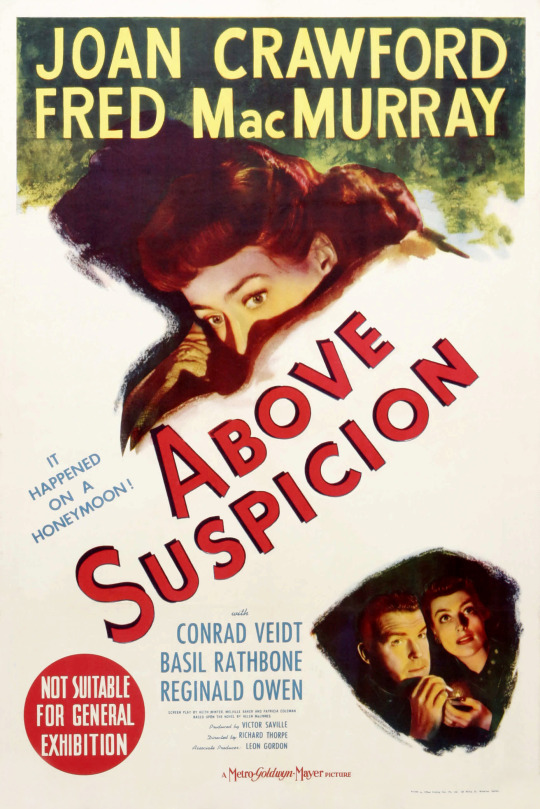
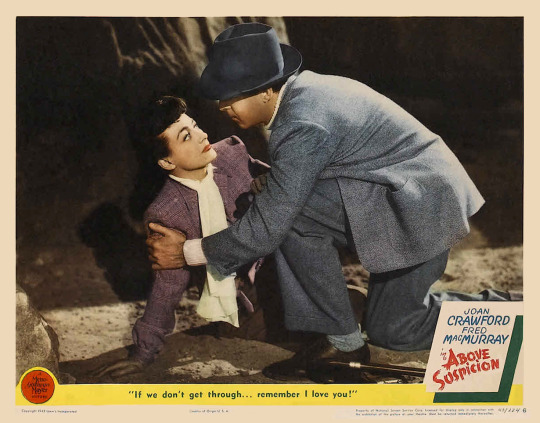
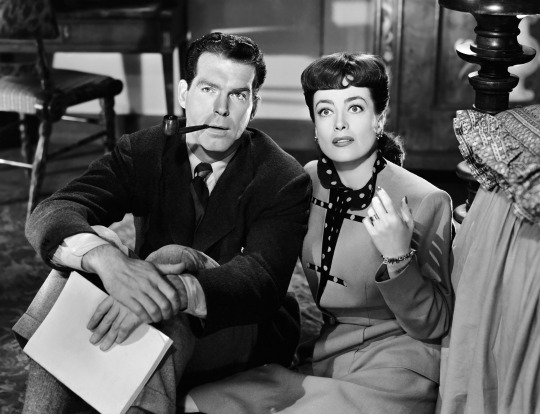
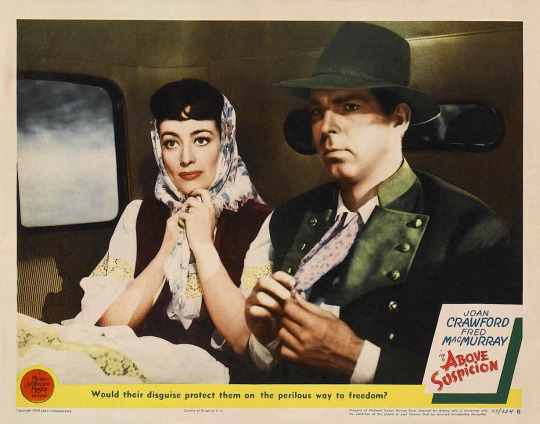
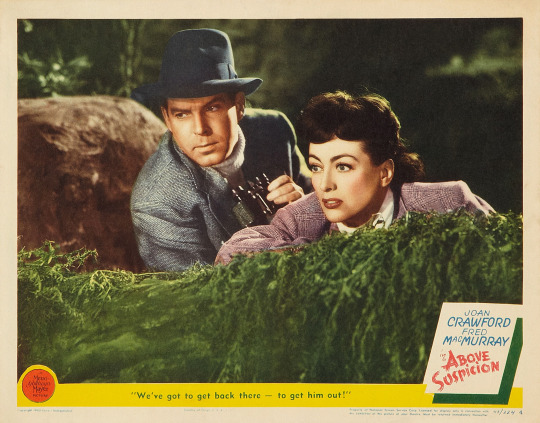
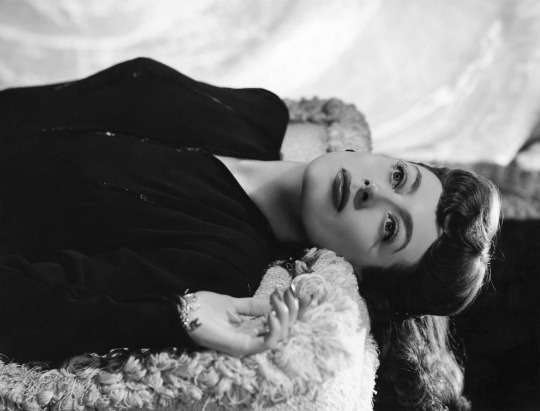
ABOVE SUSPICION
MGM, 1943. Directed by Richard Thorpe. Camera: Robert Planck. With Joan Crawford, Fred MacMurray, Conrad Veidt, Basil Rathbone, Reginald Owen, Richard Ainley, Cecil Cunningham, Ann Shoemaker, Sara Haden, Felix Bressart, Bruce Lester, Johanna Hofer, Lotta Palfi, Alex Papana, Rex Williams, Hans von Morhart, William Yetter, Steve Geray, William "Wee Willie" Davis, Lisa Golm, Ludwig Stossel.
0 notes
Link
For just $3.99 Little Woman Released on July 15, 1948: Old man Cameron turned his ranch into a home for war orphaned boys, but his crooked lady lawyer wants to cheat him out of his ranch and money. Directed by: Mervyn LeRoy. The Actors: June Allyson, Peter Lawford, Margaret O'Brien, Elizabeth Taylor, Janet Leigh, Rossano Brazzi, Mary Astor, Lucile Watson, C. Aubrey Smith, Elizabeth Patterson, Leon Ames, Harry Davenport, Richard Wyler, Connie Gilchrist, Ellen Corby, Dorothy Abbott, Marci Booth, Harlan Briggs, Rosalee Calvert, Melinda Casey, Frank Darien, Lisa Golm, Eloise Hardt, June Hedin, Patsy Henry, Olin Howland, Scotty Hugenberg, Clare Jane Karnback, Gloria Moore, Diane Nance, Ralph Peters, Norman Rainey, Isabel Randolph, Marilyn Thorpe, María Torres, Stuart Torres, Arthur Walsh, Will Wright. Runtime: 2h 2min *** This item will be supplied on a quality disc and will be sent in a sleeve that is designed for posting CD's DVD’s *** This item will be sent by 1st class post for quick delivery. Should you not receive your item within 12 working days of making payment, please contact us as it is unusual for any item to take this long to be delivered. Note: All my products are either my own work, licensed to me directly or supplied to me under a GPL/GNU License. No Trademarks, copyrights or rules have been violated by this item. This product complies with’s rules on compilations, international media, and downloadable media. All items are supplied on CD or DVD.
0 notes
Text
Twilight Zone Tuesday - The Man in the Bottle
Twilight Zone Tuesday – The Man in the Bottle
The Man in the Bottle Arthur Castle – Luther Adler Edna Castle – Vivi Janiss Genie – Joseph Ruskin Mrs. Gumley – Lisa Golm IRS Man – Olan Soule Narrator – Rod Serling Really, genie stories should just automatically come with a subheading of “Doesn’t matter what you wish for, you’re screwed”. We’re in what’s usually called a junk shop but this one has some pretty cool stuff. The owner (Arthur) is…
View On WordPress
0 notes